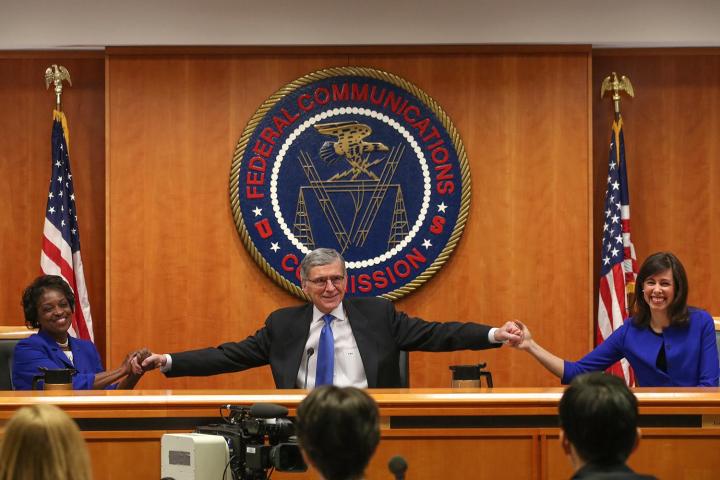
The FCC is arguing that Internet access isn’t a luxury in 2016: it’s essential for everything from finding employment to finishing homework assignments. This leaves 64.5 million Americans, who can’t afford broadband, at a disadvantage.
“Internet access has become a prerequisite for full participation in our economy and our society, but nearly one in five Americans is still not benefiting from the opportunities made possible by the most powerful and pervasive platform in history,” wrote FCC chairman Tom Wheeler in a blog post.
The Lifeline program is funded by surcharges on phone lines, and currently provides subsidized landlines and mobile phone service. 39.7 million households qualify for Lifeline, meaning not all of the 64.5 million Americans without broadband access would qualify for the program.
Whatever the numbers, Wheeler says that access to broadband is as essential to living now as phone service was in the 1980s.
“We must never lose sight of the fact that what we’re really talking about is people,” wrote Wheeler. “Unemployed workers who miss out on jobs that are only listed online, students who go to fast-food restaurants to use the Wi-Fi hotspots to do homework, veterans who are unable to apply for their hard-earned benefits, seniors who can’t look up health information when they get sick.”
The $9.25 offered by the program would be almost enough to pay for discount Internet access provided by some companies. For example, Comcast offers the 10Mbps Internet Essentials program to qualifying people for $9.95 a month, just a little more than the $9.25 subsidy.
On March 31, the FCC voted in favor of the plan, which will thereby increase spending on Lifelife from $1.5 billion a year to $2.25 billion, adjusted for inflation. The vote resulted in a 3-2 outcome, with Democrats sanctioning the plan and Republicans objecting. Republican Commissioner Ajit Pai claimed that a 5-0 vote would have occurred had Democratic Commissioner Mignon Clyburn not withdrawn.
Consumer advocates and trade groups representing ISPs commended the commission’s decision, with USTelecom stating that the Lifeline plan “will help to bring the transformative benefits of the Internet to millions of low-income Americans.” Meanwhile, the National Cable & Telecommunications Association claimed that the vote “takes important steps to help even more Americans adopt broadband at home.”
The broadband subsidy proposal was only half the news from today, though. A second proposal was also approved, allowing Internet users to untick some of that pesky monitoring and web usage monetization Internet providers are notorious for. ISPs are obviously unhappy with this arrangement.
Updated on 03-31-2016 by Gabe Carey: Amended to reflect voting outcomes and resulting government insights.
Article originally published on 03-08-2016.


